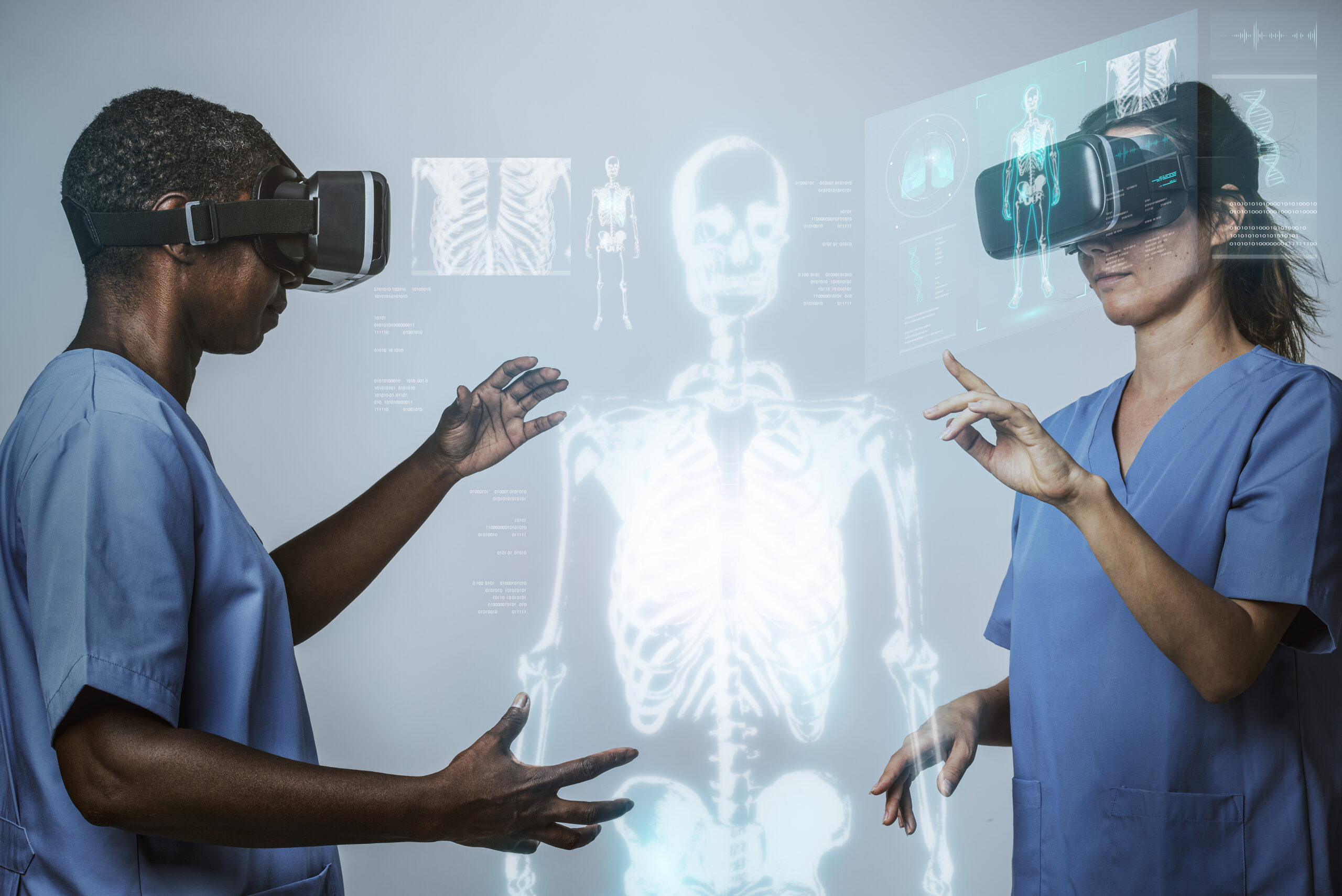Artificial Intelligence is the development of computer models that perform tasks that normally require human intelligence. It includes techniques such as machine learning and deep learning that enable computers to analyze data, recognize patterns and make decisions. Artificial intelligence has many applications in healthcare, finance, transportation and more. It automates tasks, improves decision making, increases productivity and provides self-awareness. Although AI machines lack true human-level intelligence, they excel at certain tasks and continue to evolve. Know more about (How AI Works and AI Benefits in Healthcare?)
How AI works in healthcare?
AI has the potential to revolutionize healthcare in many ways by improving patient care, diagnosis, treatment planning and overall efficiency. Some key areas where AI is impacting healthcare include:
Medical Imaging: AI can analyze medical images such as X-rays, MRI and CT scans to identify abnormalities and help diagnose diseases such as cancer and heart disease. and neurological diseases. It helps radiologists by highlighting potential concerns, reducing misinterpretations, and speeding up the diagnostic process.
Diagnostics: AI algorithms can analyze patient data, including symptoms, medical history, and test results to provide accurate diagnosis and time Machine learning models combine patient data with large databases of medical information to uncover underlying conditions and guide doctors’ decision-making can compare.
Precision Medicine: AI allows you to customize treatment plans by tapping into a person’s genetics, lifestyle, and medical history. By analyzing big data, AI can identify patterns and predict how patients will respond to certain drugs or treatments, enabling better interventions and treatments.
Drug Discovery: Developing new drugs is a time-consuming and expensive process. Artificial intelligence can accelerate this process by analyzing large volumes of biomedical data, predicting the efficacy and safety of potential drugs, and identifying new drug targets. AI algorithms can also help redesign existing drugs for new applications, reducing the time and cost required for clinical trials.
Virtual Assistants and Chatbots: AI-powered virtual assistants and chatbots can interact with patients, gather medical information, provide basic medical advice, and provide information about illnesses. It can test patients, help doctors focus on more important cases, and improve access to healthcare in remote areas.
Predictive analytics: AI can analyze large volumes of medical data, including electronic health records (EHRs), to identify patterns, detect early warning signs, and predict infectious diseases. It aids patient care, reduces reading, and improves public health management.
Robot-Assisted Surgery: Artificial intelligence-assisted surgical robots help surgeons perform complex procedures with greater precision, better control, and smaller incisions.
They can compensate for human error and improve the outcome of surgery, reduce complications and shorten recovery time.
Administrative Actions: Artificial intelligence can enable medical staff to focus on patient care by performing administrative tasks such as scheduling appointments, billing and coding. Natural Language processing (NLP) algorithms can analyze medical data, extract important information, and provide accurate coding for insurance purposes.
Despite the enormous potential of AI in healthcare, there are still issues to be addressed, such as data privacy and security, regulatory decisions, and the fair and responsible use of AI technology. However, with careful use and continued research, AI has the power to transform and improve health.
What is the benefit of AI in healthcare?
AI in healthcare has many advantages that can impact the care of patients, doctors, and health as a whole. Some of the key benefits of AI in healthcare include:
Improving accurate diagnosis: AI algorithms can analyze large amounts of patient data, including medical data, clinical examination, and genetic information, to help diagnose disease. AI-powered diagnostic tools enable accurate and timely diagnosis by detecting diseases, abnormalities, and early signs that human doctors may find difficult to detect.
Improved Treatment Planning and Personalized Treatment: AI can help doctors create personalized treatment plans based on patient characteristics such as genetics, medical history, and lifestyle. AI algorithms can recommend best treatments, drug changes and potential drug interactions by analyzing big data and comparing with similar patients, leading to beneficial and adjusted benefits.
Better health: AI can improve health systems, business management, and increase work efficiency. Virtual assistants and chatbots can manage patients’ daily questions, schedule appointments and reminders, and reduce the administrative burden of medical staff. This allows healthcare professionals to focus directly on patient care, resulting in increased efficiency and better allocation of resources.
Predictive analytics and early intervention: AI algorithms can analyze patient data in real time to identify potential health risks and predict the likelihood of developing disease. By analyzing patterns and patterns, AI can aid early detection and intervention to prevent the spread of a disease or problem.
Medical image analysis: AI has shown great potential in the analysis of medical images such as X-rays, CT scans and MRIs. AI algorithms can help radiologists detect abnormalities, classify diseases, and identify areas of concern for height. This can make diagnosis faster, more accurate, reduce misinterpretation, and improve patient management.
Drug Discovery and Development: Artificial intelligence can accelerate the drug discovery process by analyzing biological and chemical data, predicting molecular interactions, and identifying potential drug users. This could reduce the time and cost required to develop new treatments, lead to the discovery of new treatments and a better drug development pipeline.
Remote Monitoring and Telemedicine: Artificial intelligence powered remote monitoring devices and telemedicine platforms enable patients to receive medical care from the comfort of their homes. Artificial intelligence algorithms can analyze data collected from wearable devices and sensors to understand patients’ health in real time and facilitate remote communication. This improves access to healthcare, especially for people living in remote or sedentary areas.
Overall, the benefits of AI in healthcare include accurate diagnosis, personalized care, simplified treatment, early intervention, rapid medical imaging, rapid drug discovery, and expanded medical referrals. These advances have the potential to improve patient outcomes, reduce healthcare costs, and change the way healthcare is delivered.

